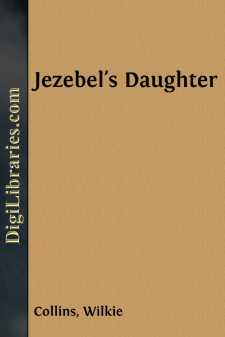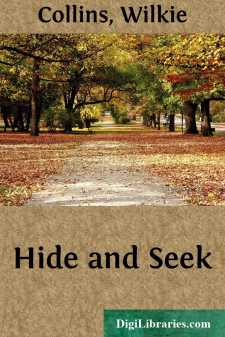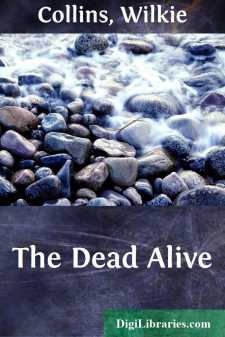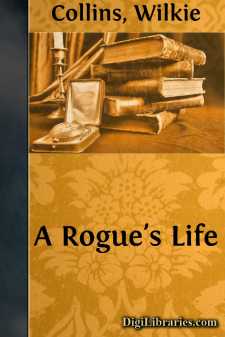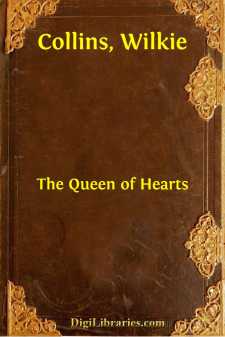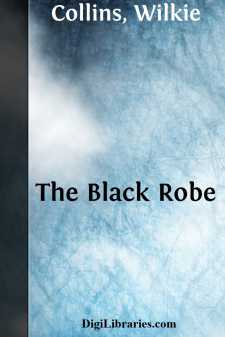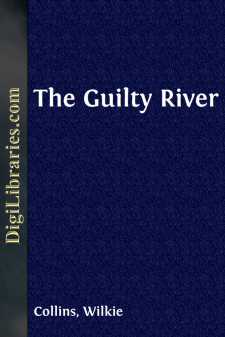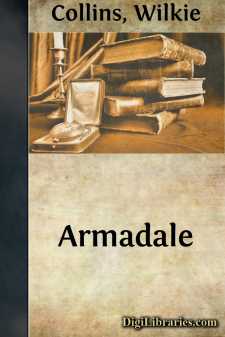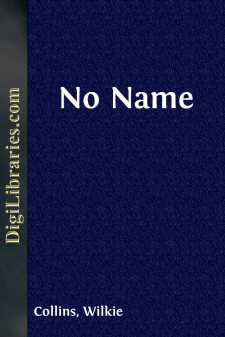Categories
- Antiques & Collectibles 13
- Architecture 36
- Art 48
- Bibles 22
- Biography & Autobiography 813
- Body, Mind & Spirit 142
- Business & Economics 28
- Children's Books 15
- Children's Fiction 12
- Computers 4
- Cooking 94
- Crafts & Hobbies 4
- Drama 346
- Education 46
- Family & Relationships 57
- Fiction 11828
- Games 19
- Gardening 17
- Health & Fitness 34
- History 1377
- House & Home 1
- Humor 147
- Juvenile Fiction 1873
- Juvenile Nonfiction 202
- Language Arts & Disciplines 88
- Law 16
- Literary Collections 686
- Literary Criticism 179
- Mathematics 13
- Medical 41
- Music 40
- Nature 179
- Non-Classifiable 1768
- Performing Arts 7
- Periodicals 1453
- Philosophy 64
- Photography 2
- Poetry 896
- Political Science 203
- Psychology 42
- Reference 154
- Religion 513
- Science 126
- Self-Help 84
- Social Science 81
- Sports & Recreation 34
- Study Aids 3
- Technology & Engineering 59
- Transportation 23
- Travel 463
- True Crime 29
Jezebel's Daughter
by: Wilkie Collins
Categories:
Description:
Excerpt
Let me begin by informing you, that this new novel does not present the proposed sequel to my last work of fiction—"The Fallen Leaves."
The first part of that story has, through circumstances connected with the various forms of publications adopted thus far, addressed itself to a comparatively limited class of readers in England. When the book is finally reprinted in its cheapest form—then, and then only, it will appeal to the great audience of the English people. I am waiting for that time, to complete my design by writing the second part of "The Fallen Leaves."
Why?
Your knowledge of English Literature—to which I am indebted for the first faithful and intelligent translation of my novels into the Italian language—has long since informed you, that there are certain important social topics which are held to be forbidden to the English novelist (no matter how seriously and how delicately he may treat them), by a narrow-minded minority of readers, and by the critics who flatter their prejudices. You also know, having done me the honor to read my books, that I respect my art far too sincerely to permit limits to be wantonly assigned to it, which are imposed in no other civilized country on the face of the earth. When my work is undertaken with a pure purpose, I claim the same liberty which is accorded to a writer in a newspaper, or to a clergyman in a pulpit; knowing, by previous experience, that the increase of readers and the lapse of time will assuredly do me justice, if I have only written well enough to deserve it.
In the prejudiced quarters to which I have alluded, one of the characters in "The Fallen Leaves" offended susceptibilities of the sort felt by Tartuffe, when he took out his handkerchief, and requested Dorine to cover her bosom. I not only decline to defend myself, under such circumstances as these—I say plainly, that I have never asserted a truer claim to the best and noblest sympathies of Christian readers than in presenting to them, in my last novel, the character of the innocent victim of infamy, rescued and purified from the contamination of the streets. I remember what the nasty posterity of Tartuffe, in this country, said of "Basil," of "Armadale," of "The New Magdalen," and I know that the wholesome audience of the nation at large has done liberal justice to those books. For this reason, I wait to write the second part of "The Fallen Leaves," until the first part of the story has found its way to the people.
Turning for a moment to the present novel, you will (I hope) find two interesting studies of humanity in these pages.
In the character called "Jack Straw," you have the exhibition of an enfeebled intellect, tenderly shown under its lightest and happiest aspect, and used as a means of relief in some of the darkest scenes of terror and suspense occurring in this story. Again, in "Madame Fontaine," I have endeavored to work out the interesting moral problem, which takes for its groundwork the strongest of all instincts in a woman, the instinct of maternal love, and traces to its solution the restraining and purifying influence of this one virtue over an otherwise cruel, false, and degraded nature....


